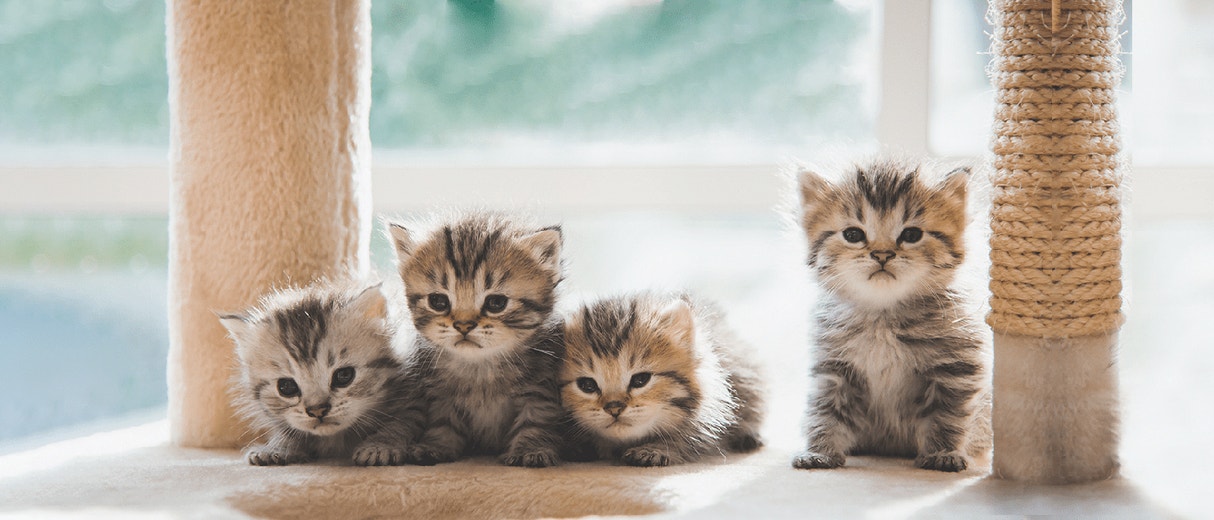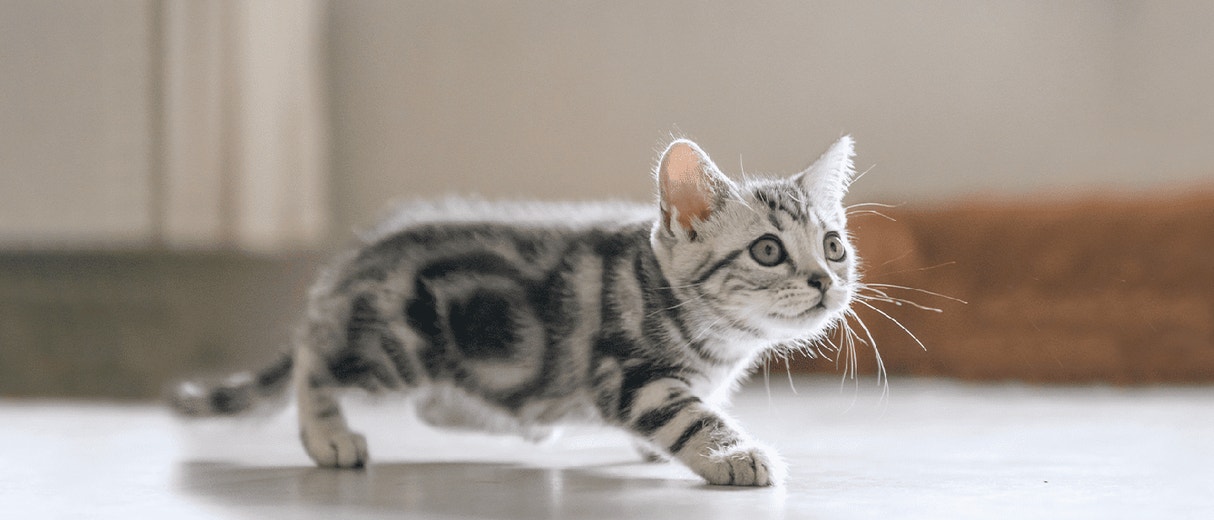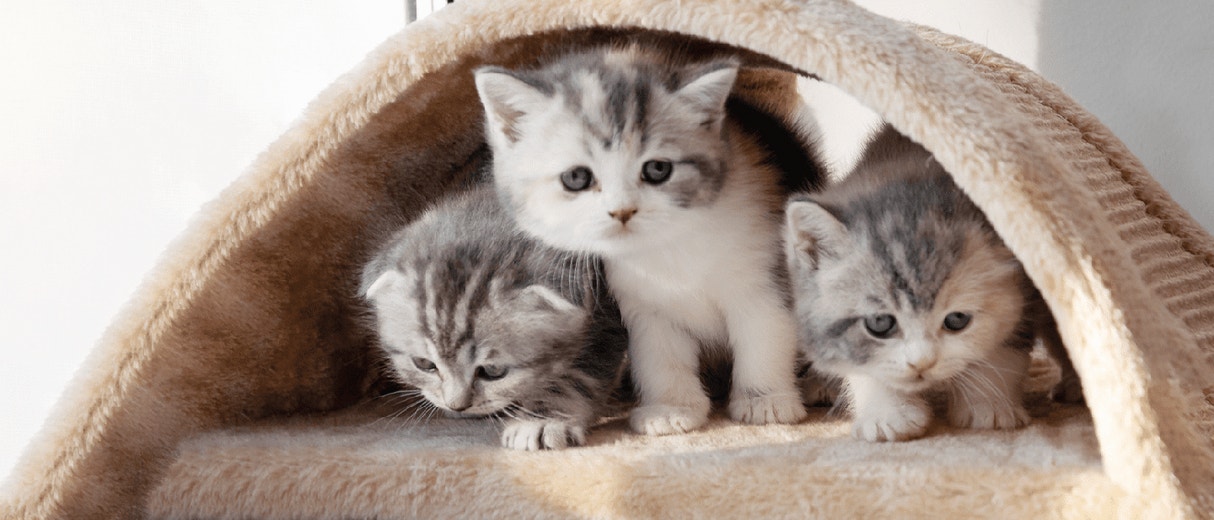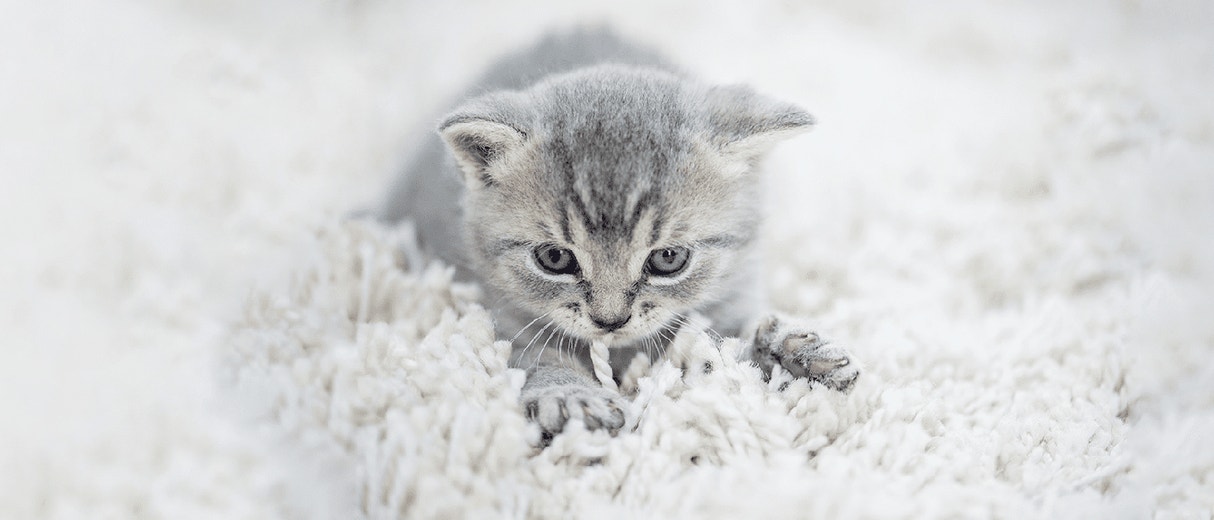
Introducing Kitten to Children
There’s no doubt about it - your little kitten is very adorable. If you have children, they’ll quickly fall in love with the family’s new furry friend. However, if your children are noisy, move suddenly or pet your kitten too much, she might become frightened. So it’s a good idea to establish the ground rules early on, and teach your children how to play properly with the new arrival.
 Playing the “Kitten Game”
Playing the “Kitten Game”
The “Kitten Game” is a great way for your children to see the world through your kitten’s eyes. Get them to crouch on their hands and knees, with their faces close to the floor, pretending to be a kitten! If you have more than one child, tell one to stay on the floor while the others run and jump around. Then get them to swap. That way, they can all see how big the world appears to their cuddly little friend.
 Playing with a toy
Playing with a toy
Here’s a great way to show your children how to stroke a kitten - give them a toy cat! Encourage them to handle the toy gently, and demonstrate the differences between stroking, patting and hitting. At the same time, you can show your children exactly where your kitten likes to be stroked.
 Where to stroke
Where to stroke
Your little kitten will love being stroked on her ears, chest, neck and back. Don’t let your children stroke your kitten’s tummy or back legs - these areas are very sensitive. Also teach your children to look for signs that your kitten no longer wants physical contact, and tell them that’s the time to stop petting.
 First introductions
First introductions
To begin with, tell your children just to stroke your new kitten gently. Remind them always to be very calm, soft and gentle. Always stay with your children while the’re petting their little furry friend, and remember to keep the sessions short and fun.
 Playing nicely
Playing nicely
As your kitten settles in, you can start showing your children how to play with her. It’s a good idea to use toys rather than hands, just in case playtime gets a bit boisterous! And always let your kitten leave when she’s had enough - just like toddlers, kittens get tired easily and need lots of naps.




